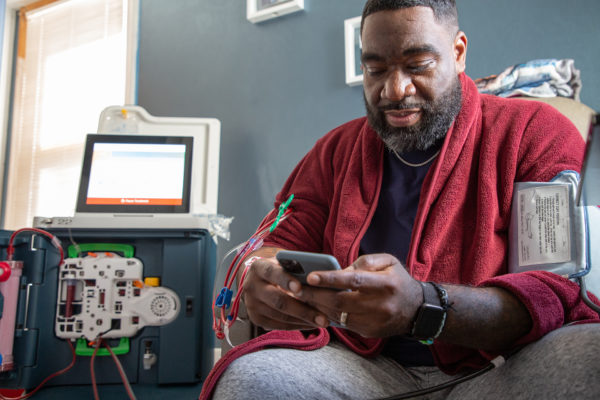The movement to home-based dialysis picked up momentum on Wednesday as three industry leaders rolled out new efforts to get more patients to dialyze at home.
First, nonprofit kidney care company Satellite Healthcare and medical technology firm Outset Medical announced a joint effort to drive home hemodialysis within Satellite’s network of 80 dialysis centers in five states. As part of the deal, Satellite will purchase and use Outset’s portable Tablo dialysis systems. The two companies will also collaborate on education and training initiatives to boost patient awareness of home dialysis.

“With new technologies and new patient education tools available today, we feel now is the time to empower patients to really own their dialysis treatment experience and enable them to reap the many benefits that come with receiving care at home,” Satellite Healthcare CEO Jeff Goldman told McKnight’s Home Care Daily.
Virtual support groups
Also on Wednesday, DaVita Kidney Care, one of the nation’s largest home dialysis providers, launched virtual support groups DaVita Care Connect. The home dialysis platform creates a support community for patients dialyzing at home.
“Patients treating at home sometimes feel isolated and miss connecting with other people they feel they can relate to, which causes some patients to leave home treatment,” Martin Schreiber, M.D., DaVita’schief medical officer for home modalities, said. “By using our virtual platform to connect home patients with one another, we hope to create a sense of community, belonging and extended support.”
DaVita support specialists will lead the groups which encourage patients to share experiences and ask questions.
Home-oriented initiative
The effort to drive dialysis away from centers and into homes began two years ago when former President Donald Trump launched Advancing American Kidney Health. The initiative aims to reduce spending on end stage renal disease (ESRD) by 2025 by having 80% of new patients dialyzing at home or getting kidney transplants. About 1% of Medicare recipients have ESRD, but they account for about 7% of Medicare spending.
Last week, the National Kidney foundation released a study that found patients with kidney disease need more education regarding treatment options. Investigators found current educational programs focused heavily on in-center dialysis with little mention of other treatment options.
Proponents of in-home dialysis say it gives patients more flexibility in timing their treatments and allows them to lead more normal lives.

“We have always believed that dialyzing at home is vital to restoring identity, autonomy and a sense of self-worth for those managing kidney disease,” Outset Medical CEO Leslie Trigg told McKnight’s Home Care Daily.
Newer home dialysis systems have become more user-friendly in recent years and send data directly to healthcare providers.


